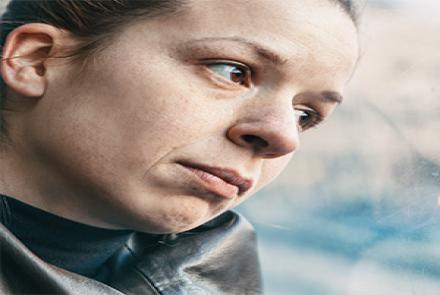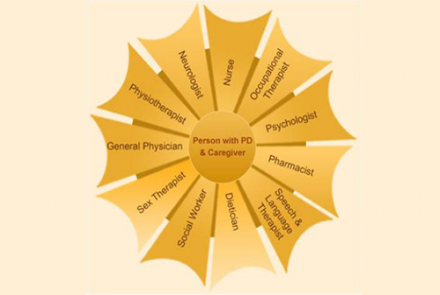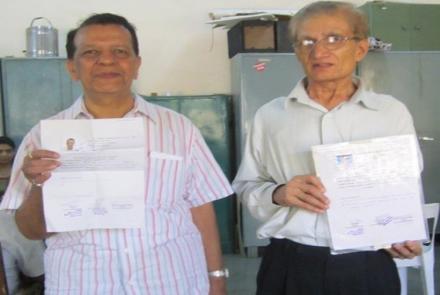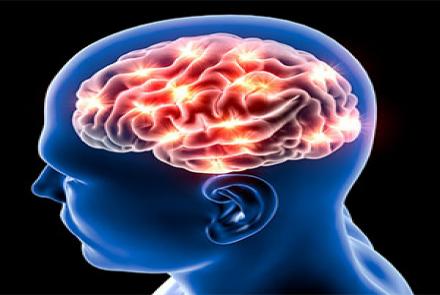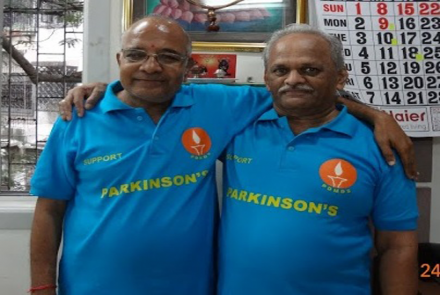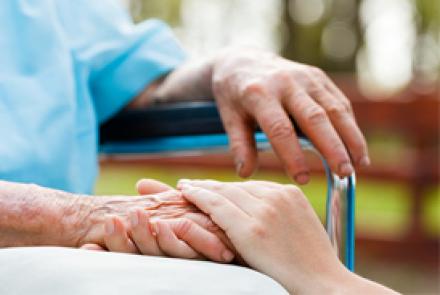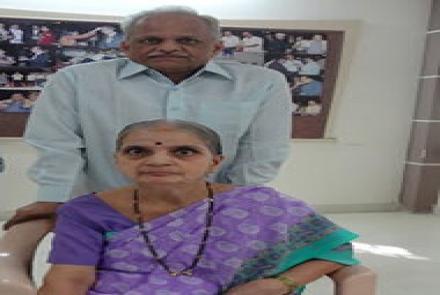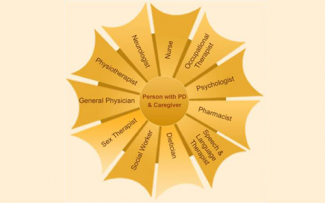
It is important to be aware of the Multidisciplinary Team of Health Care Professionals who play an integral role in the care and treatment of people with Parkinson’s as well as their caregivers. These professionals offer support and practical tips in those areas which you as a caregiver find difficult to manage and this also aids in an improvement in quality of life.
Neurologist- Is a medical practitioner, who is licensed to make a diagnosis of PD (and other neurological conditions) following a complete clinical examination, to offer medical prescription & pharmacological treatment and medical advice to combat the various symptoms of Parkinson’s.
Physiotherapist- provides exercise programs and techniques that focus on improving strength, flexibility, balance, posture and over all range of movement. Regular physiotherapy is essential in slowing the progression of Parkinson’s and ensuring optimal movement.
Speech Therapist- helps with managing problems related to communication, speech and language. Through a range of exercises and activities they focus on improving all aspects of communication like volume of voice, articulation i.e. clarity of speech, breathing, facial expressions and body language.
Dietician- frames a nutritious diet regime keeping medication timings in mind, corrects nutrition related deficiencies, offers weight management suggestions as well as useful substitutes when faced with chewing and swallowing difficulties, dietary interventions for constipation etc
Psychologist- With the help of sharing, talking and offering tested techniques, psychologists help in overcoming feelings of Depression, Anxiety, and lack of motivation as well as inter personal relationship problems. They also offer management strategies for complaints such as delusions, hallucinations, impulse control problems and sleep disturbances.
Occupational Therapist- enable PWPs to carry out their activities of daily living such as writing, dressing, bathing, eating etc with a certain degree of ease and offer different and simpler ways to complete these activities. They also suggest certain home modifications that ensure unobstructed movement in the home and reduce the vulnerability of falls.

